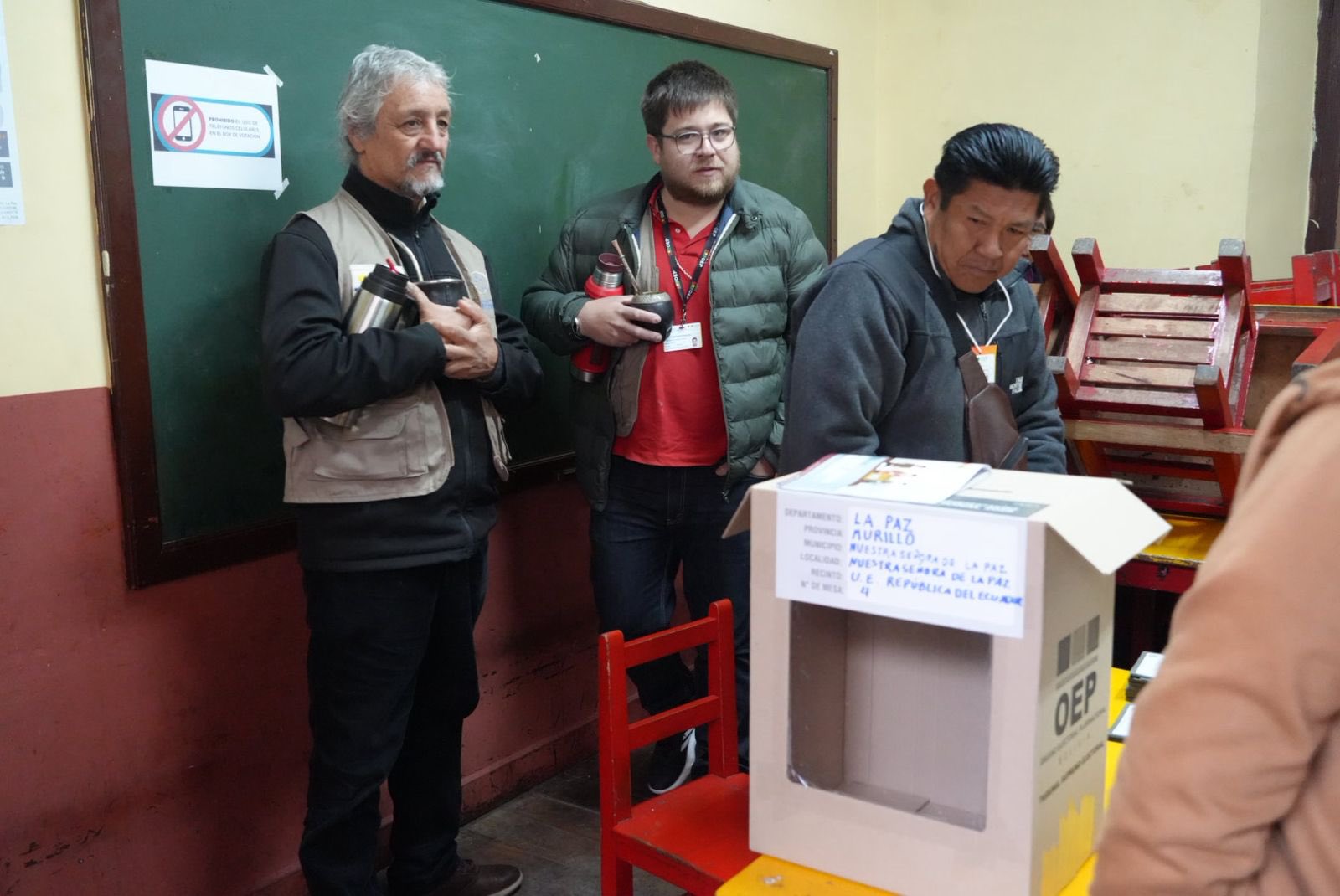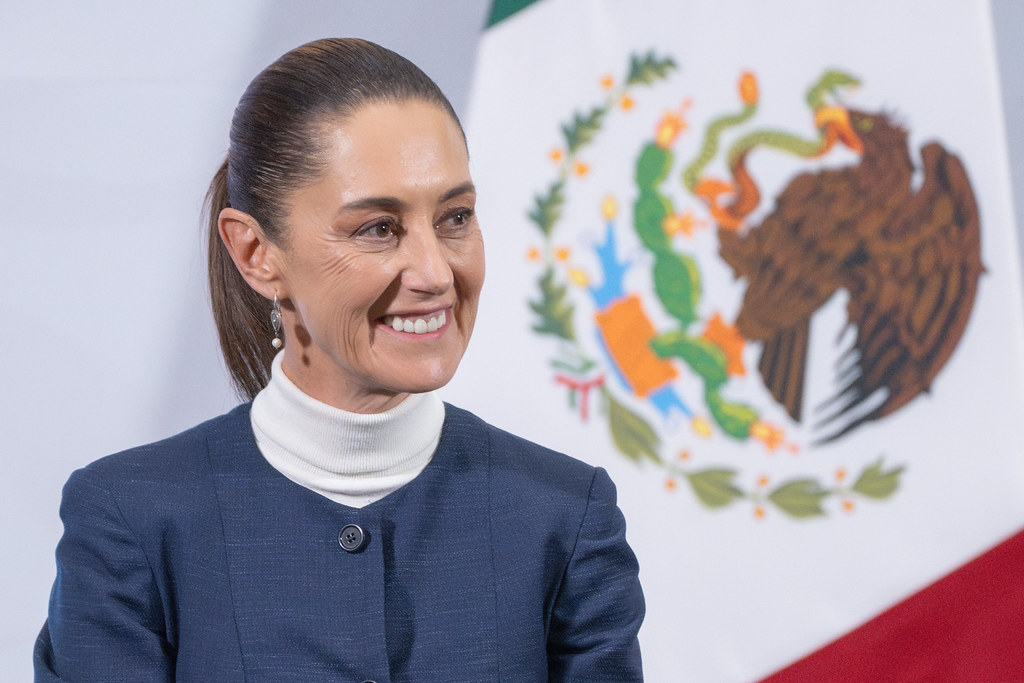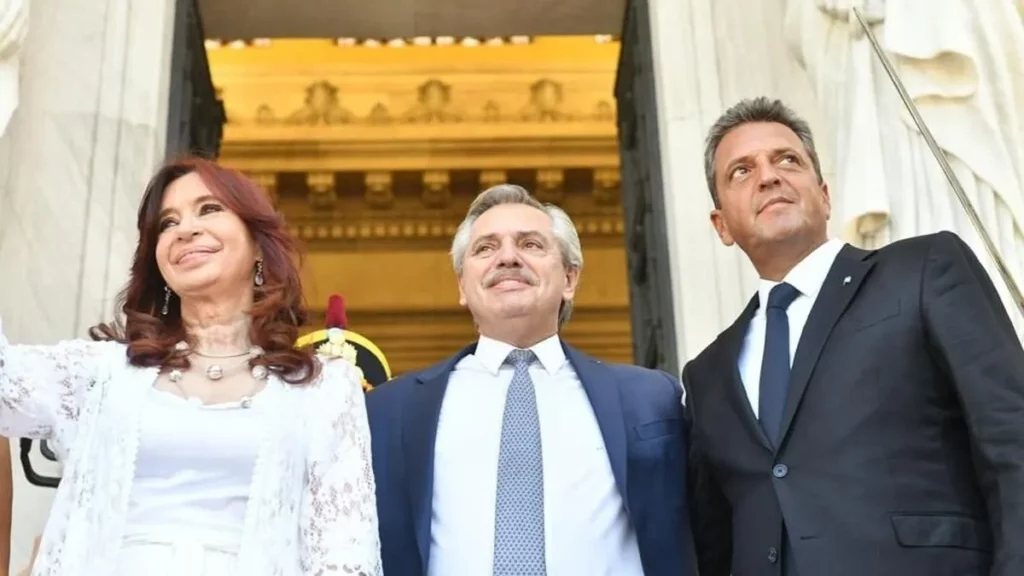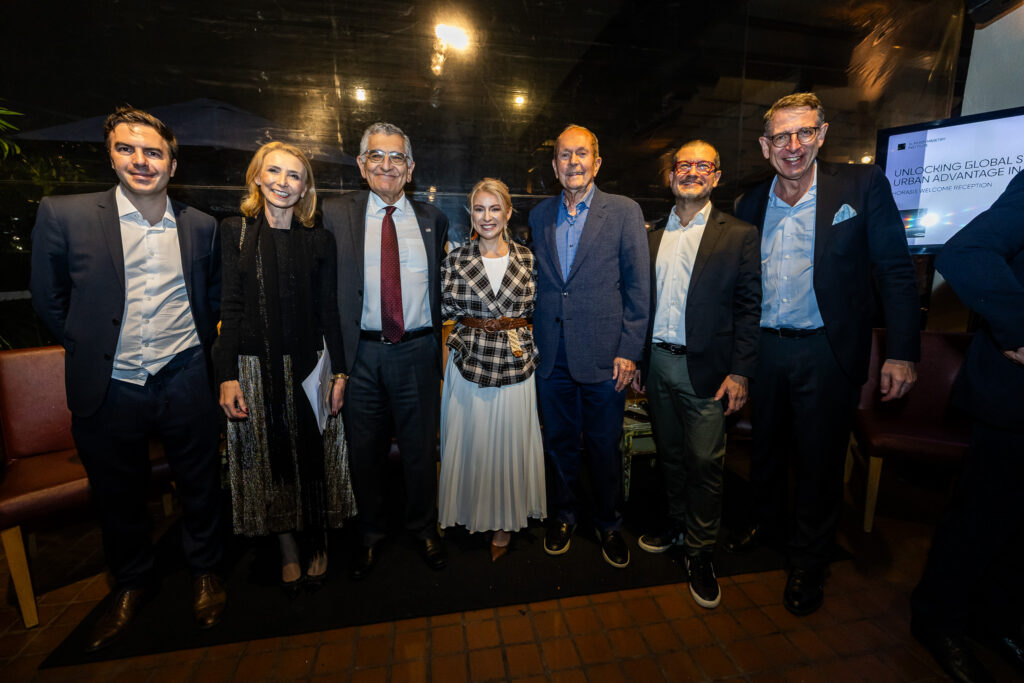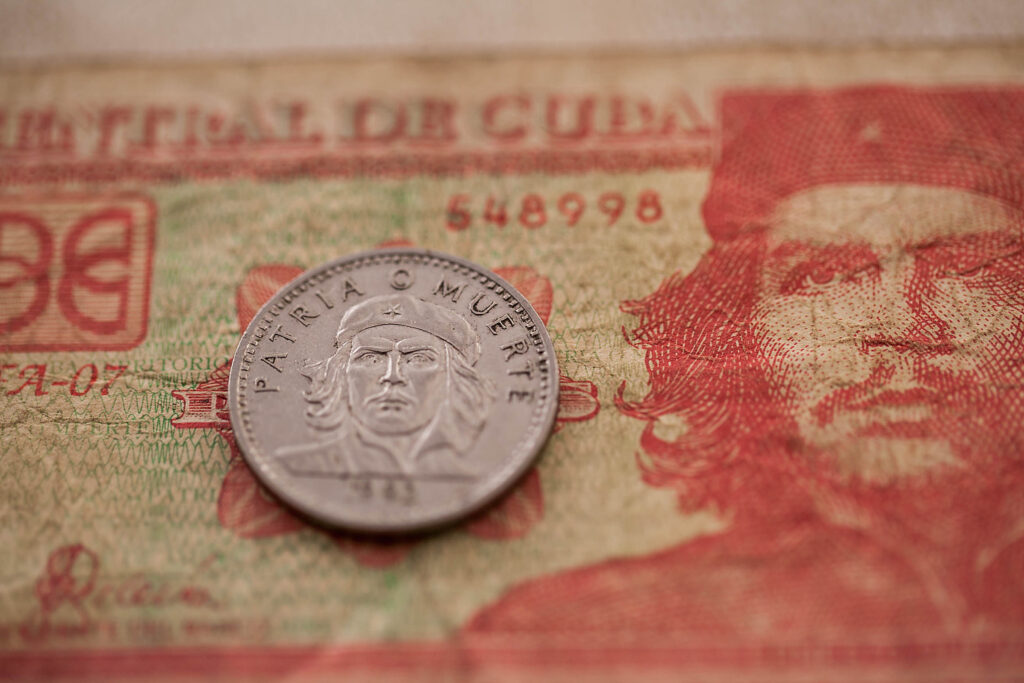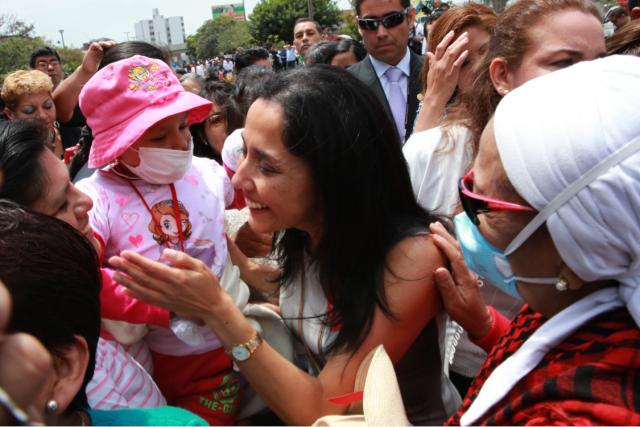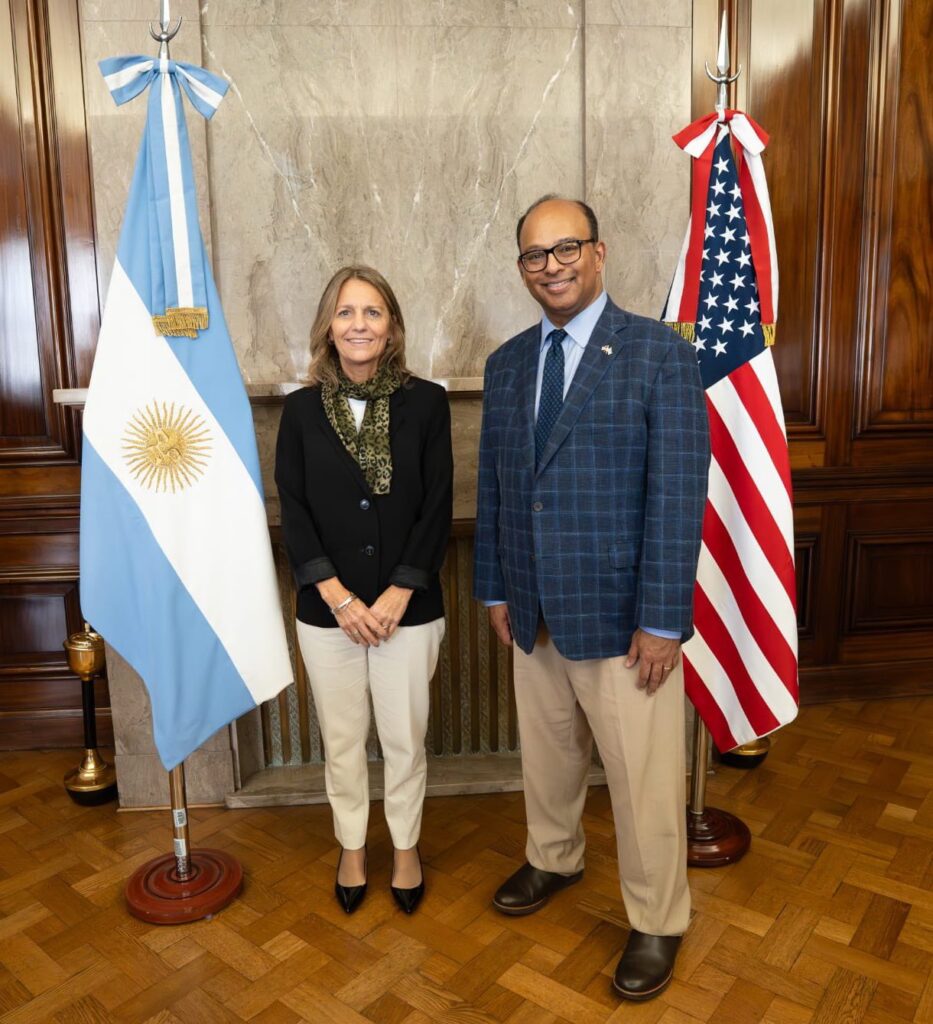Montevideo, Uruguay– Bolivians will head to the polls on Sunday, August 17 to elect their next president and parliamentary representatives.
The left-wing Movement to Socialism (MAS) party- which has been in power for all but one year since 2005- is widely expected to face sweeping losses amid declining support and Bolivia’s economic crisis.
The two candidates leading the polls are Samuel Doria Medina and Jorge ‘Tuto’ Quiroga, with Medina holding a narrow lead.
Medina is a centre-right businessman, running on an anti-MAS platform, whilst conservative ex-president Quiroga (2001-2002) is proposing cooperation with the International Monetary Fund (IMF) and other international organizations to fund the country’s economic recovery.
Economic concerns have dominated the campaign. In a June Captura survey, 92.9% of respondents rated the country’s situation as “bad” or “very bad.
“Everything is expensive and the wages aren’t enough to make ends meet,” Melisa, an agronomist in the Bolivian capital of La Paz, explained while in conversation with Latin America Reports.
Falling natural gas production, subsequent scarcity of U.S. dollars, difficulty in importing goods, and fuel shortages have all prompted soaring inflation now set at 24.89% for 2025.
Analysts predict the election to go to a second voting round due to how close it appears to be- a first in the country’s history. This also reflects the weakness of the contenders; according to a survey conducted last month by newspaper El Deber, every single candidate is viewed unfavourably by over 50% of voters.
MAS’s fortunes have been further worsened by internal divisions. Former President Evo Morales (2006-2019) publicly stated that he refused to be part of the party’s ticket and has instead called on supporters to spoil their ballots.
Read more: Evo Morales calls on supporters to spoil ballots ahead of elections
The party’s presidential candidate, Andrónico Rodriguez, bears little hope of victory according to Unitel and El Deber’s polling and has been denounced as a “traitor” by Morales.
Morales had announced his intention to run in this year’s elections but was prevented from doing so due to a law barring candidates from serving more than two terms. Current president Luis Arce is also not running, having pulled out due to his widespread unpopularity.
Morales had handpicked Arce as his successor in the 2020 elections, but the two later split after Arce refused to include him in his administration.
Morales now faces accusations of rape and human trafficking, which he claims were fabricated by Arce’s government. He has, in turn, accused Arce of ordering his assassination, alleging he was shot at 14 times in October 2024.
Both leading candidates in the 2025 election, Medina and Quiroga, have said they would seek Morales’ arrest if elected.
Read more: The statutory rape allegations against former Bolivian President Evo Morales
In the 2019 presidential election, Morales declared victory but fled the country amid widespread fraud allegations, leading to the annulment of the results. The aftermath saw severe unrest and violence, including massacres of protesters by police and the military.
Morales has since threatened to mobilize his supporters and “give battle on the streets” if a right-wing candidate wins- a warning that comes just two months after clashes between his followers and police left four officers and four protesters dead.
With MAS expected to lose, fears of both electoral manipulation and post-election violence are growing. For one, the European Union has sent more than 120 observers to ensure the election’s fairness, while the government has announced there will be no domestic flights and restricted land travel on Sunday.
Many Bolivians fear renewed unrest. Felipe, a university student in the central city of Cochabamba, suggests that the transition will not be peaceful: “Evo Morales’ supporters won’t sit still […] the last time was horrible.”
Adrián, a lawyer in La Paz, also predicts that “it won’t take long for protests to begin.”
Others are more cautious. Luis, a factory worker in the Bolivian capital, says that while he doubts “that [MAS] will let themselves be beaten easily […] they do not have the same strength as they did before” and that “the people really do want change.”
Polling reflects this sentiment, and while unrest is unlikely to reach the 2019 levels, even a small group of dissenters could cause serious disruption.
Featured image:
Image: MERCOSUR observers verify the opening of voting tables and electoral procedures in Bolivia, 2025
Source: Parlamento MERCOSUR via X


